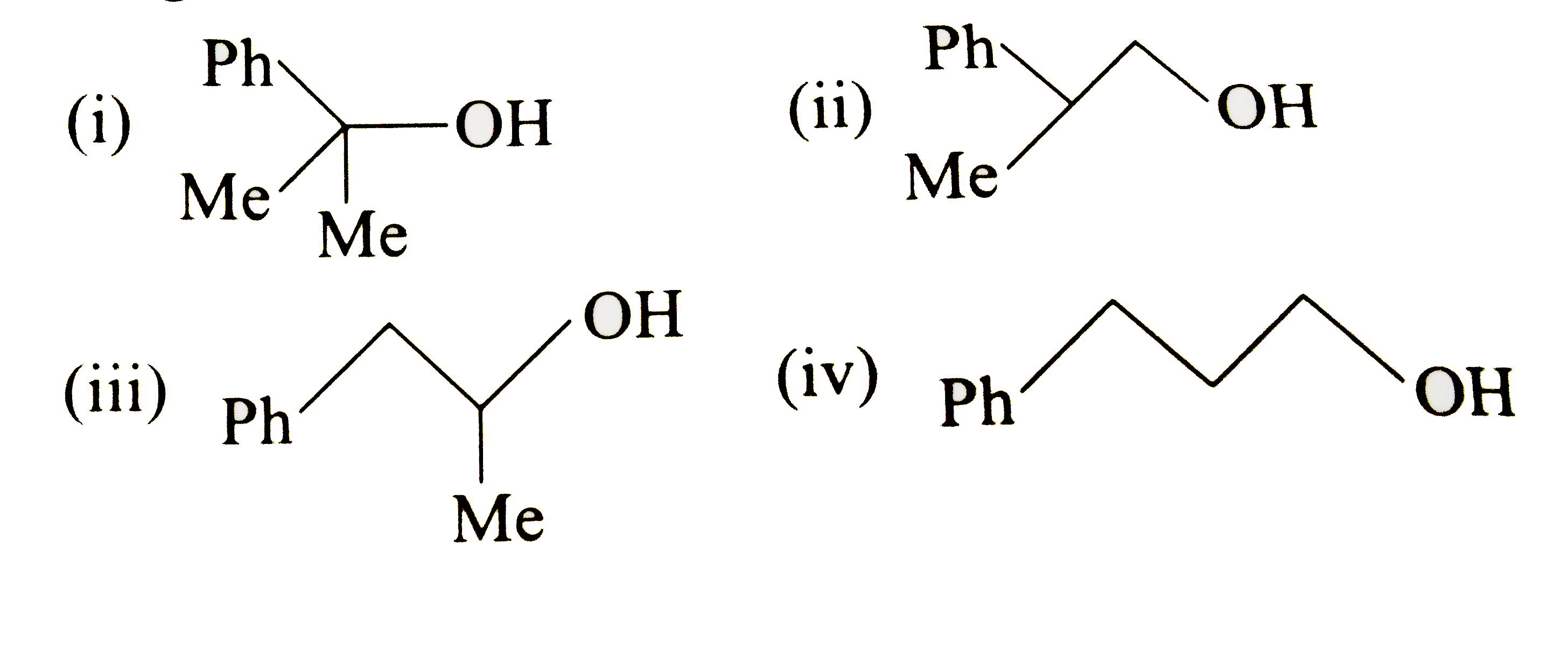Assertion: Both grignard reagent and dialkyl cadmium react with acid chlorides to form tert-alcohols.
Reason: Grignard reagents are as reactive as dialkyl cadmium.
A
if both assertion and reson are true, and reason is the true explanation of the assertion.
B
If both assertion and reason are true, but reason is not the true explanation of the assertion.
C
if assertion is true, but reason is false.
D
If both assertion and reason are false.
Video Solution
Text Solution
The correct Answer is:D
Correct assertion: Grignard reagents react with acid chlorides to give tert-alcohols but dialkylcadmium gives ketones.
Correct reason. Grignard reagents are more reactive than dialkylcadmium.
|
Topper's Solved these Questions
- ALDEHYDES, KETONES AND CARBOXYLIC ACIDS Book:PRADEEPChapter:ALDEHYDES, KETONES AND CARBOXYLIC ACIDS Exercise:IMPORTANT QUESTIONS FOR BOARD EXAMINATION
Explore 29 Videos
- ALDEHYDES, KETONES AND CARBOXYLIC ACIDS Book:PRADEEPChapter:ALDEHYDES, KETONES AND CARBOXYLIC ACIDS Exercise:COMPETITION FOCUS JEE (MAIN AND ADVANCED)/MEDICAL ENTRANCE SPECIEAL (VII. ASSERTION-REASON TYPE QUESTIONS) Type - I
Explore 7 Videos
- ALCOHOLS, PHENOLS AND ETHERSBook:PRADEEPChapter:ALCOHOLS, PHENOLS AND ETHERSExercise:IMPORTANT QUESTIONS FOR BOARD EXAMINATIONS.
Explore 29 Videos
- APPENDIXBook:PRADEEPChapter:APPENDIXExercise:MODEL TEST PAPER <br> (Section C )
Explore 15 Videos
Similar Questions
Knowledge Check
Assertion: Both grignard reagent and dialkyl cadmium react with acid chlorides to form tert-alcohols.
Reason: Grignard reagents are as reactive as dialkyl cadmium.Aif both assertion and reson are true, and reason is the true explanation of the assertion.BIf both assertion and reason are true, but reason is not the true explanation of the assertion.Cif assertion is true, but reason is false.DIf both assertion and reason are false.Alcohols reacts with Grignard reagent to form
AAlkanesBAlkenesCAlkynesDAllAlcohols react with Grignard reagent to form
AAlkanesBAlkenesCAlkynesDAll of these
Dialkyl cadmium reacts with a compound to from a ketone. The compound is :
View SolutionA tertiary alcohol is obtained when Grignard reagent react with
View SolutionGrignard's reagent on treatment with cyanogen chloride gives
View SolutionGrignard reagent is formed when alkyl halide react with which one of the following
View SolutionThe Grignard reagent, on reaction with acetone, forms :
View Solution


